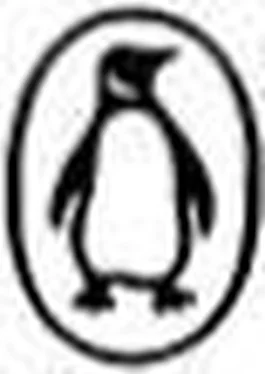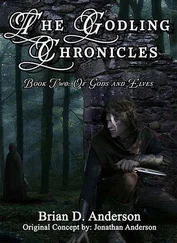Davidson, H. - Gods and Myths of Northern Europe
Здесь есть возможность читать онлайн «Davidson, H. - Gods and Myths of Northern Europe» весь текст электронной книги совершенно бесплатно (целиком полную версию без сокращений). В некоторых случаях можно слушать аудио, скачать через торрент в формате fb2 и присутствует краткое содержание. Жанр: Старинная литература, на английском языке. Описание произведения, (предисловие) а так же отзывы посетителей доступны на портале библиотеки ЛибКат.
- Название:Gods and Myths of Northern Europe
- Автор:
- Жанр:
- Год:неизвестен
- ISBN:нет данных
- Рейтинг книги:5 / 5. Голосов: 1
-
Избранное:Добавить в избранное
- Отзывы:
-
Ваша оценка:
- 100
- 1
- 2
- 3
- 4
- 5
Gods and Myths of Northern Europe: краткое содержание, описание и аннотация
Предлагаем к чтению аннотацию, описание, краткое содержание или предисловие (зависит от того, что написал сам автор книги «Gods and Myths of Northern Europe»). Если вы не нашли необходимую информацию о книге — напишите в комментариях, мы постараемся отыскать её.
Gods and Myths of Northern Europe — читать онлайн бесплатно полную книгу (весь текст) целиком
Ниже представлен текст книги, разбитый по страницам. Система сохранения места последней прочитанной страницы, позволяет с удобством читать онлайн бесплатно книгу «Gods and Myths of Northern Europe», без необходимости каждый раз заново искать на чём Вы остановились. Поставьте закладку, и сможете в любой момент перейти на страницу, на которой закончили чтение.
Интервал:
Закладка:
Finally in this picture of gods and monsters, we find the idea of the continual re-enactment, l’éternel retour , as Mircea Eliade calls it. The gods themselves were doomed to fall before the powers of darkness, and heaven and earth to pass away. But rebirth must follow destruction, and a newly cleansed earth and heaven emerge from the sea and the flames. The sons of the gods and the survivors of mankind would again people earth and heaven, new dwellings arise in Asgard, and green fields once more yield their harvest on middle earth.
Such is the picture which we discern at the heart of the old religion, behind the succession of rich, entertaining, and often moving myths which have survived from the northern world. It was claimed at the beginning that myths are a comment on human existence and a model of social behaviour, an attempt to define the inner realities. Although some of the surviving myths are clearly shaped by the hands of poets, scholars, and entertainers, there is much which appears to be basic material from heathen times. There is moreover a certain amount of information collected in the Edda poems, particularly that which has to do with the World Tree, the divisions between the worlds, and the dwellings of the gods, which has certainly not been put together for its value as entertainment. It has the appearance of a body of knowledge about the gods and their world brought together for purposes of memory or teaching. This enables us to correct the more frivolous impression given by some of the racier myths, products of an age when the gods offered a tempting target for northern wit.
We can see the myths as a vigorous, heroic comment on life, life as men found it in hard and inhospitable lands. The gods never cease their struggle against the creatures of cold and darkness. Thor, perhaps the best-loved deity of the north, is characteristic of the Vikings in his resolute pertinacity. The values for which he stood – law and order in the free community, the keeping of faith between men – were those by which the Vikings set great store, even though they themselves often appeared to the outside world as the forces of destruction unleashed. Odin represented the other side of life, the inspiration granted to the warrior and the poet, and the secret wisdom won by communication with the dead. In his cult and in the religion of the Vanir we see most clearly the shamanistic tendencies of northern religion, the emphasis on man’s powers to reach out beyond this harsh and limited world. Above all, the northern myths are clear-sighted in their recognition of the reality of the forces of destruction. The fight in a narrow place against odds, which has been called the ideal of heroic literature in the north, is given cosmic stature in the conception of Ragnarok, the doom of the gods, when Odin and his peers go down fighting against the monsters and the unleashed fury of the elements. The depths and dark mysteries of the subconscious are given full recognition in the myths. The greatest terror to be faced, that of the disintegration of the mind in madness or death, is not pushed to one side. At Ragnarok a rich and wonderful world was shattered and the monsters had their fill of destruction. After that facing of reality, it was possible to see beyond the catastrophe and to imagine a new world built upon the ruins of the old.
This does not mean that all who accepted the old heathen faith had a deep philosophy and acceptance of life. For the ordinary man, the myths might be very limited in their significance, and his religious ideas fragmentary and perfunctory. Like Kjartan, he might prefer to trust in his own strength and weapons rather than spend much time considering the gods, although he enjoyed hearing stories about them and paid them lip-service at the popular festivals. He might find more satisfaction in the popular beliefs which formed a large part of the heathen heritage for many people. Many must have paid more attention to the land-spirits, for instance, than to the high gods, to the spirits said to follow men who were lucky at hunting and fishing, who dwelt in hills and stones round the farms, and sometimes appeared in animal form or sometimes like little men with wives and children of their own. They could either help or hinder, and men and women would instinctively turn to them – as to a favourite saint – in the little troubles and hopes of everyday life in the fields or on the sea. Similarly they thought a good deal of the dead in their mounds, and remembered with awe and terror tales of local hauntings by characters who had been fearsome influences in their lifetimes and would not rest quiet in their graves. They respected the giants said to dwell in local caves or wander over the mountains behind their settlements, who could give help to men or prove terrible enemies if their hostility was aroused. Nearer even than these were the protective spirits attached to certain families, whose friendship would pass from father to son, who might be seen in dreams walking over the hills or the sea, and would give warning of approaching death. There were many popular beliefs such as these, peopling the waste places and giving a sense of significance to life, linking man with the powers which he could not control, even while they might also fill the long dark winter nights with terror.
Such popular beliefs were part of the common heritage of men, and flourished in the lonely, isolated communities among the mountains. There must always have been men however who were fanatical devotees to the cults of Odin, Thor, the Vanir, or one of the lesser gods, to whom the local shrine of the deity they chose for special worship was the centre of the world. Between the two extremes there was every variety of attitude towards the gods, inconsistencies, doubts and fears, cynical appraisal of the old tales and scorn of the ancient rites, sentimental faithfulness to the old ways and the well-known customs. There was no central organization to formulate a body of beliefs, and so ideas about the gods must have varied from one district to another, as we have seen that the names of the deities varied also. But men shared the body of myths which grew out of their beliefs about the gods, even though to some they were no more than a source of entertainment. Thus it is that certain assumptions which we find there are enlightening for our understanding of the northern peoples.
We realize anew the value which they set on individualism. Greek and Latin writers, commenting on the methods of warfare among the Germanic peoples, noted that while they were intensely loyal to leaders and kinsmen, they could not be relied on to cooperate in large numbers, or to obey a general’s commands without question:
If it comes about that their friends fall, they expose themselves to danger to avenge them. They charge swiftly with much spirit, both foot-soldiers and horsemen, as if they were of a single mind, and quite without the slightest fear. They do not obey their leaders well. Headstrong, despising strategy, precaution, or foresight, they show contempt for every tactical command.
Such was the shrewd description of the sixth-century Germans recorded in Strategicon . The same characteristics can be recognized in the Vikings later on, and help to explain why, brilliant campaigners as they were, they made no lasting conquests, and their gains soon melted away. The myths are very much stories of individuals, and their reactions to one another; they show lonely gods going their wilful ways, with certain responsibilities to the community or the family to which they belong, but little more to hold them.
While there is constant recognition of the fact of death and its seriousness, it is faced without undue fear. The emphasis in the myths is the same as that in the heroic poetry, on the importance not of holding on to life at any cost, but of acting in a way which will be long remembered when life is over. There are many noble expressions of this desire for renown, and they have often been quoted, but it is nevertheless worth while recalling two of them again. First a passage from the poem Beowulf , the consolation offered to a king when one of his best-loved followers has been killed:
Читать дальшеИнтервал:
Закладка:
Похожие книги на «Gods and Myths of Northern Europe»
Представляем Вашему вниманию похожие книги на «Gods and Myths of Northern Europe» списком для выбора. Мы отобрали схожую по названию и смыслу литературу в надежде предоставить читателям больше вариантов отыскать новые, интересные, ещё непрочитанные произведения.
Обсуждение, отзывы о книге «Gods and Myths of Northern Europe» и просто собственные мнения читателей. Оставьте ваши комментарии, напишите, что Вы думаете о произведении, его смысле или главных героях. Укажите что конкретно понравилось, а что нет, и почему Вы так считаете.












